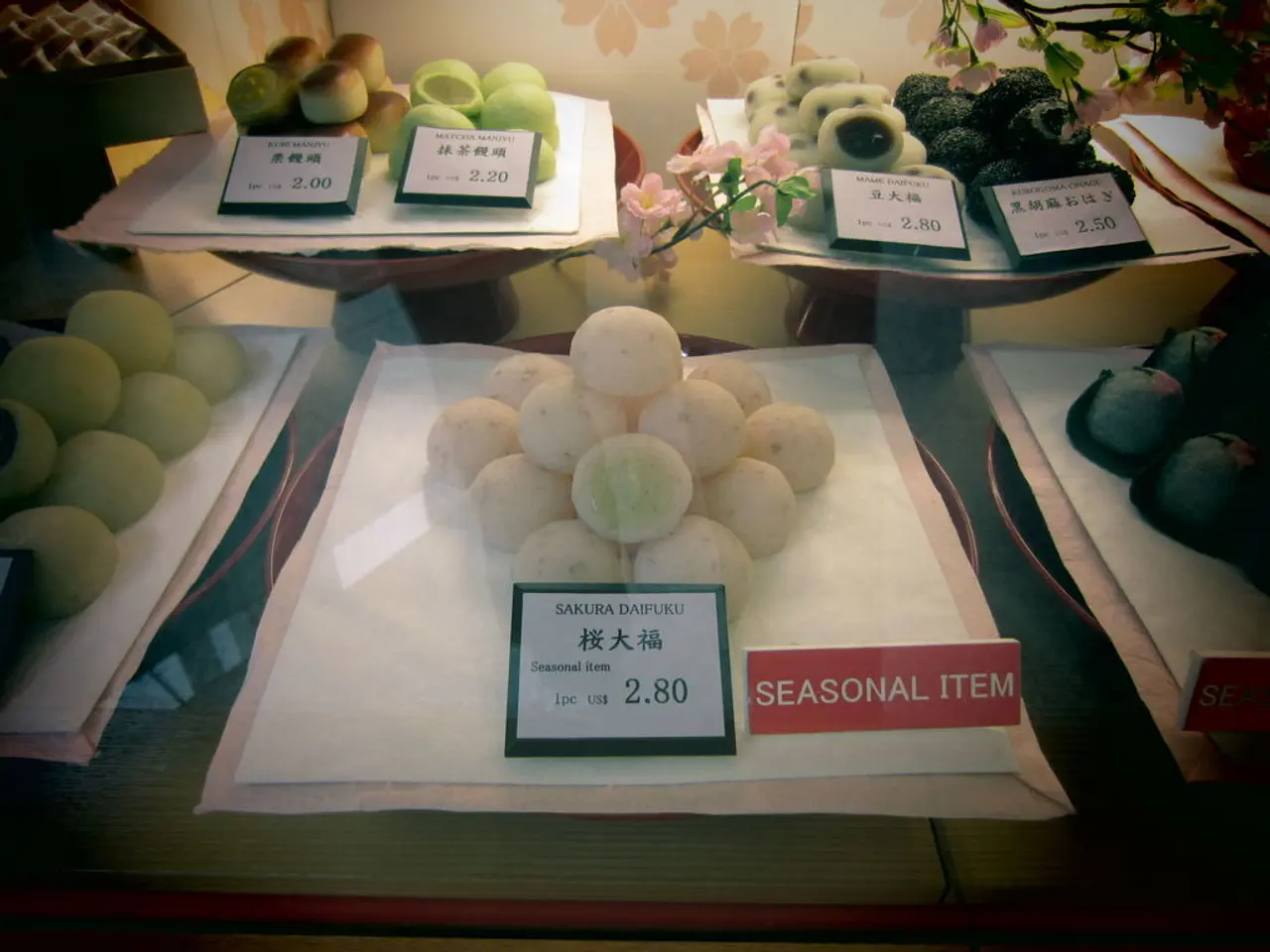India's Wholesale Prices Register a Decline in June 2025, hitting -0.13%
In a surprising turn of events, India witnessed negative wholesale inflation in June 2025, marking the first instance of deflation this year. The Wholesale Price Index (WPI) stood at -0.13%, a significant drop from the previous month's 0.81% rise.
The decline in WPI is primarily attributed to a fall in prices of vegetables, pulses, crude petroleum and natural gas, electricity, and fuel and power. Among food items, vegetable prices fell sharply by 22.71%, while pulses dropped 14.11% compared to June last year. Fuel and power prices also eased considerably, with a 2.65% drop year-on-year and a 2.52% decline over the previous month.
This broad-based softening in wholesale prices could have several implications for retail inflation. The decrease in wholesale prices can lead to lower retail prices, as evidenced by the Consumer Price Index (CPI) inflation falling to 2.1% in June 2025, its lowest level in several years.
The positive base effect, where the current inflation rate is compared to higher rates in the previous year, also contributed to the moderation in retail inflation.
The softening in wholesale prices could potentially influence the direction of retail inflation in the coming months. If the trend persists, it could lead to further moderation in retail prices, providing relief to consumers.
The Reserve Bank of India (RBI), which primarily considers retail inflation while finalizing its monetary policy decisions, may continue to adopt an accommodative stance, aiming to support economic growth while keeping inflation under control. The RBI has already reduced the repo rate in response to moderating inflation, which could continue if inflation remains below target.
The RBI has also reduced its inflation forecast for 2025-26, indicating a belief that inflationary pressures are easing. This could lead to further policy adjustments if the trend persists.
The upcoming consumer inflation data is crucial for future policy direction of the RBI. A continued decline in consumer inflation could provide the RBI with the opportunity to maintain or enhance its accommodative monetary policy stance, potentially supporting economic growth while navigating inflation targets.
The softening in wholesale prices could potentially benefit producers by reducing cost pressures. This could lead to increased production and potentially lower retail prices in the long run.
In conclusion, the negative wholesale inflation in June 2025 presents opportunities for the RBI to maintain or enhance its accommodative monetary policy stance, potentially supporting economic growth while navigating inflation targets. The upcoming months will be crucial in determining the trajectory of retail inflation and the RBI's monetary policy decisions.
- The decline in wholesale prices, as a result of reduced prices in key areas like fuel, power, and food items, might induce changes in business strategies for producers aiming to keep up with the financial implications.
- The positive impact of the softening in wholesale prices on retail prices, as evidenced by the drop in consumer price inflation, could potentially influence business operations in the finance sector as well, with lower inflation rates leading to more affordable credit and loans for businesses.




